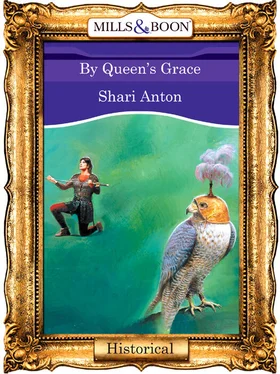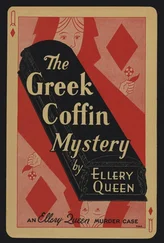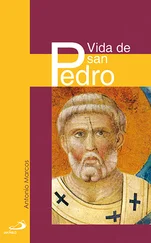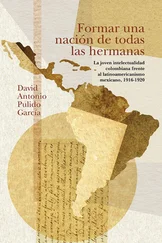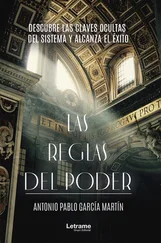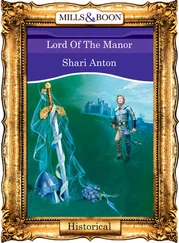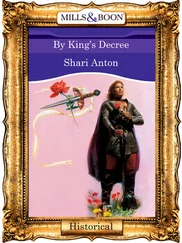Even though forewarned, Judith stumbled and cried out at the force of his shove.
She began walking, becoming angry all over again. “Was that necessary?” she said, tossing the words over her shoulder.
“It looked good to Thurkill. He needs to believe you and I are at odds.”
“What makes you think we are not?”
Judith sat against the cold cave wall, trying to ignore Thurkill’s loud, echoing voice, trying not to feel guilty for getting Oswuld into trouble with his father. She shouldn’t care if Thurkill punished his son severely, as he threatened, for allowing her brief escape.
Corwin busied himself with the tack on his destrier, apparently also trying to disregard Thurkill’s shouting. He didn’t quite succeed. At times, he would glance at Oswuld with a puzzled look on his face, as if wondering how much more Oswuld could bear without fighting back.
Duncan hadn’t yet returned. When he did, they would leave. She wished he would hurry. Then she wouldn’t have to listen to Thurkill’s ranting, and wouldn’t wonder if his wrath would turn on her. He-hadn’t said a word to her since her capture, only thanked Corwin for his quick thinking and speedy action.
Thanks to Corwin’s suggestion, names of Saxon nobles whirled around in her head, but she couldn’t think of one she knew who had reason-and the means-to lead a rebellion against England’s king.
Judith pulled Ardith’s note from the folds of her tattered nun’s robe. As always, the sight of her friend’s lovely script proved soothing. Over the years, Ardith had written of her everyday life at Wilmont, of the trials and joys that came with the duties as chatelaine to so large an estate, as well as being a wife and mother. No matter how much she complained at the price of some commodity, or how difficult she found it to get everything done within the space of a day, Ardith sounded as happy as any woman could possibly be.
She’d married a wonderful man, both lover and friend, who treated her with respect and who she respected in return. The two of them worked and played, shared joys and sorrows, always together. To Judith’s mind, they enjoyed the ideal marriage. What must it be like to know, deep within your heart, that one very special person would always be there when needed, would love and cherish you forever?
“Is aught amiss?” Corwin asked.
He stood before her, his arms crossed over the wide expanse of his chest. So much was amiss she didn’t know how he could ask her such a question. But then, he wasn’t looking at her, but at the parchment she held in her hands. ‘Twasnot for her that he voiced concern.
“Nay. What leads you to think so?”
“Youlooked. saddened. I thought mayhap Ardith wrote of ill tidings, and I wondered what they were.”
On that, she could set his mind at ease. “Ardith writes of the boys’ antics, of her husband’s protectiveness and of not being able to see her feet. ‘Twill please her greatly to have her child born.”
Ardith also wrote of her brother, but Corwin already knew that. Judith had ungraciously told him so last eve after he’d handed her the letter.
The corner of his supple mouth curved into a brief smile. “She will push this child out with hopes of having another. Last I heard, she wants six at the least.”
“And Gerard?”
“Will grant her every whim, so long as it does not harm her health.”
Judith glanced down at the note. “Her happiness shines through in every word she writes. She and Gerard have the perfect marriage, do they not?”
Corwin shook his head. “She misleads you in her letters, then. Both are headstrong. When they argue, the rest of us stay well away.”
The one time Judith had seen Gerard and Ardith together, Gerard had been in a fine temper, bellowing Ardith’s name, plunging through the abbey’s passageways as he looked for her. Upon finding her, he’d growled his displeasure. When Ardith had chided him, assured him of her well-being, that bear of a man had gentled almost instantly. Judith could well imagine the sparks that flew when Ardith’s temper clashed with Gerard’s. She doubted, however, if any argument could cause a permanent rift in the marriage. The two loved each other too well.
“Yet when their disagreement is over, their love remains undamaged, does it not?” Judith asked. At Corwin’s nod, she continued, “‘Tis as it should be, and worth bearing most any hardship. If there is a rebellion, Ardith will stand with Gerard, come what may. Be they in castle or hut, she will be happy so long as they are together. This assumes, of course, that Gerard does not die in the fighting.”
Corwin grinned. “Do not worry over Gerard. The man is quite skilled at holding his own in any fight involving swords.”
In the ensuing silence-and there was silence, for Thurkill had ceased his tirade-Judith refolded the precious piece of parchment and tucked it safely away.
Duncan returned to the cave. “Ah, the princess is found,” he said, giving her a mock bow. Judith refused to acknowledge his insolence.
When she gave no retort, he turned to Thurkill. “While searching for the lady, I spied a small village. One of the women was spreading garments over bushes, I assume to dry from washing. Now might be our chance to pilfer a gown for her ladyship.”
“Why did you not just take one?” Thurkill grumbled.
“I was busy looking for the princess. Besides, what sense taking one if she had not been found?”
Judith took the hand Corwin offered to help her up. She didn’t want to let go. The man did strange things to her mind. Though she wondered if she could trust him, she still felt safest when he was near.
“My lady,” Thurkill said, “I will warn you only this once. Should you attempt another escape, I will order you tied to one of us at all times. You will not know another moment’s privacy.”
He said it without a dram of emotion in his voice. Not a plea for cooperation nor an angry threat, ‘twas the statement of a commander of men.
Before she could express her outrage, Corwin spoke.
“Best heed the warning, Lady Judith. ‘Twould be most uncomfortable for you, and bothersome for the rest of us to have you tied.”
Did she hear an underlying message-that Corwin would find it harder to arrange an escape if her hands were tied? Or did she imagine it, wanting to believe he had her best interests at heart and not those of the rebels?
“The next time I leave you, Thurkill, ‘twill be for good.” And with that, she headed for Thurkill’s horse.
Oswuld stood there. He’d draped a blanket over the horse’s rump. “‘Tis not much, my lady, but may soften the ride.”
His kindness touched her, especially since she’d caused him so much trouble. But she was the victim here and refused to treat any of her captors other than as villains. They might take any softening of her attitude as a sign of weakening her stance, and that she couldn’t do.
“You have the right of it, Oswuld. ‘Tis not much. A horse of my own would be much appreciated.”
“Then you might wish to assure my father you are resigned to making the whole of this journey, or he may judge you too untrustworthy to let you have your own mount.”
“I will not change my mind about assisting this nefarious scheme. I have no desire to meet much less marry your lord.”
“Resist as you will, my lady.” Oswuld glanced over at his father, who still conversed with Corwin. “Father will take you to our camp, willing or no. He has his orders and will see them through or.”
Конец ознакомительного фрагмента.
Текст предоставлен ООО «ЛитРес».
Прочитайте эту книгу целиком, купив полную легальную версию на ЛитРес.
Читать дальше
